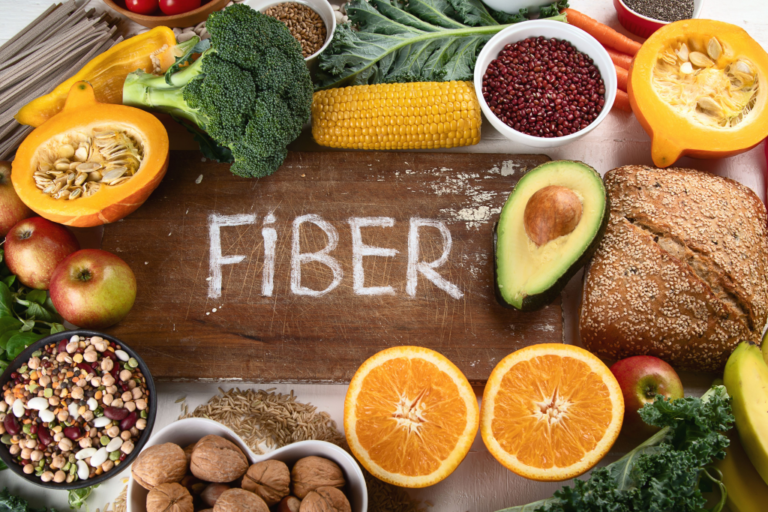In the pursuit of a balanced and healthy diet, the role of dietary fiber cannot be overstated. It is the unsung hero that supports digestion, regulates blood sugar levels and contributes to overall well-being. In this article, we’ll reveal the top ten high-fiber foods that not only deliver nutrients, but also add a delightful array of flavors and textures to your meals.
Beans
Lentils and various legumes offer a convenient means of incorporating fiber into your meals, whether in soups, stews or salads. For example, edamame, which is steamed soybeans, makes a great fiber-rich snack. A cup of cooked lentils contains about 14.5 grams of fiber. In addition, these legumes serve as a source of vegetable protein. Some bakers have begun incorporating beans or bean flours into their baked goods, a practice that research shows can produce high-quality cakes. (1)(2)(3)
nuts
Nuts provide not only a rich supply of protein and beneficial fats, but also a remarkable amount of fiber. For example, a serving of sunflower seeds and almonds contains over 3 grams of fiber. This can go a long way toward reaching the FDA’s recommended daily intake of 25 grams for women and 38 grams for men. It is recommended that you choose raw or roasted nuts as opposed to prepackaged varieties, which are often cooked in oil, potentially adding excessive and unnecessary calories. In addition, nut butters can also be an important source of dietary fiber. (4)(5)(6)
Broccoli
This vegetable is often labeled as a high fiber choice. It belongs to the genus of Brassica plants, along with cauliflower, cabbage and cabbage, meaning it is a cruciferous vegetable. This classification implies that it contains a variety of nutrients, not just fiber. Research shows that a cup broccoli provides approximately 2.4 grams of fiber and this can have a positive impact on gut health by supporting beneficial gut bacteria, contributing to a balanced and healthy digestive system. (7)(8)(9)
Potatoes
There are several types of potatoes, including sweet potatoes, red potatoes, purple potatoes, and the classic white potato, which serve as excellent sources of fiber. Only one medium potato with its skin can provide almost 3 grams of fiber. Despite their association with less nutritious forms like french fries and fries, when prepared without frying in oil and excessive salt, potatoes offer many health benefits. (10)
Berries
Berries are known for their high antioxidant content, but they are also rich in fiber. Consuming just one cup fresh blueberries provides 3.5 grams of fiber, and that amount is nearly the same as a cup of unsweetened frozen blueberries. Blueberries, strawberries and raspberries are also excellent sources of dietary fiber. In addition, berries offer the advantage of being naturally low in calories, further enhancing their nutritional profile. (11)
Dried fruit
Dried fruits such as figs, prunes and dates are rich sources of dietary fiber and are often recommended for people who experience occasional constipation. These fruits contain a natural sugar called sorbitol, which can help promote regular bowel movements and increase comfort. However, consuming too much can lead to cramping or diarrhea, so it’s a good idea to start with a small portion and gauge your body’s response after digestion before consuming larger amounts.
Avocado
Avocados are incredibly versatile and complement a wide range of dishes including toast, salads, entrees and eggs. While they’re usually praised for their abundance of healthy fats, it’s worth noting that one cup avocado contains approx 10 grams of fibers.
Apples
According to research, the traditional saying “an apple a day keeps the doctor away” may not be entirely accurate. However, apples can contribute to your daily fiber intake. Depending on their size, apples they usually contain about 3.5 grams of fiber. (12)
Wholegrain
Genuine whole grains, found in 100% whole-wheat bread, whole-wheat pasta, brown rice and oats, are high in fiber. A critical tip to remember is that, according to the Food and Drug Administration, the first ingredient listed on a food package must be whole grains for it to be classified as a true whole grain product. (13) (14) (15)
Pop corn
One cup of popcorn contains one gram of fiber. When eaten in its natural state without butter, this snack is considered a whole grain that can help satisfy cravings with a good dose of fiber. (16)
